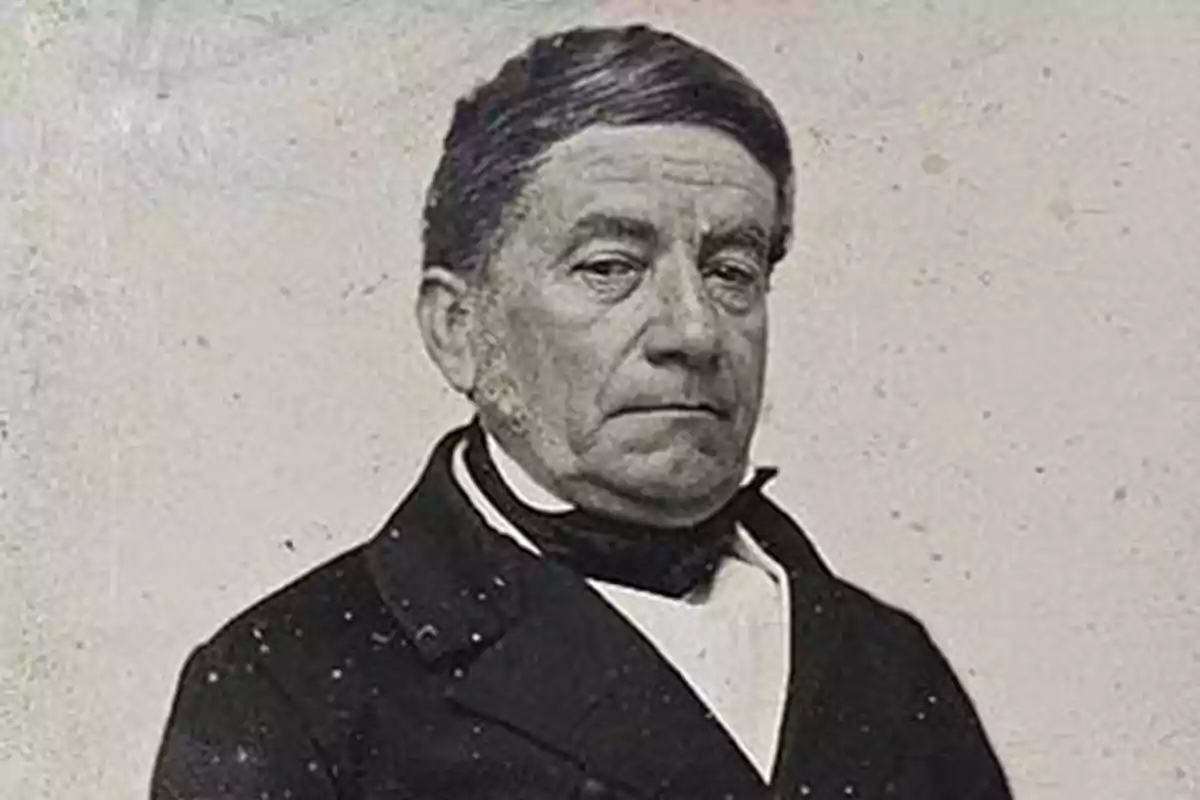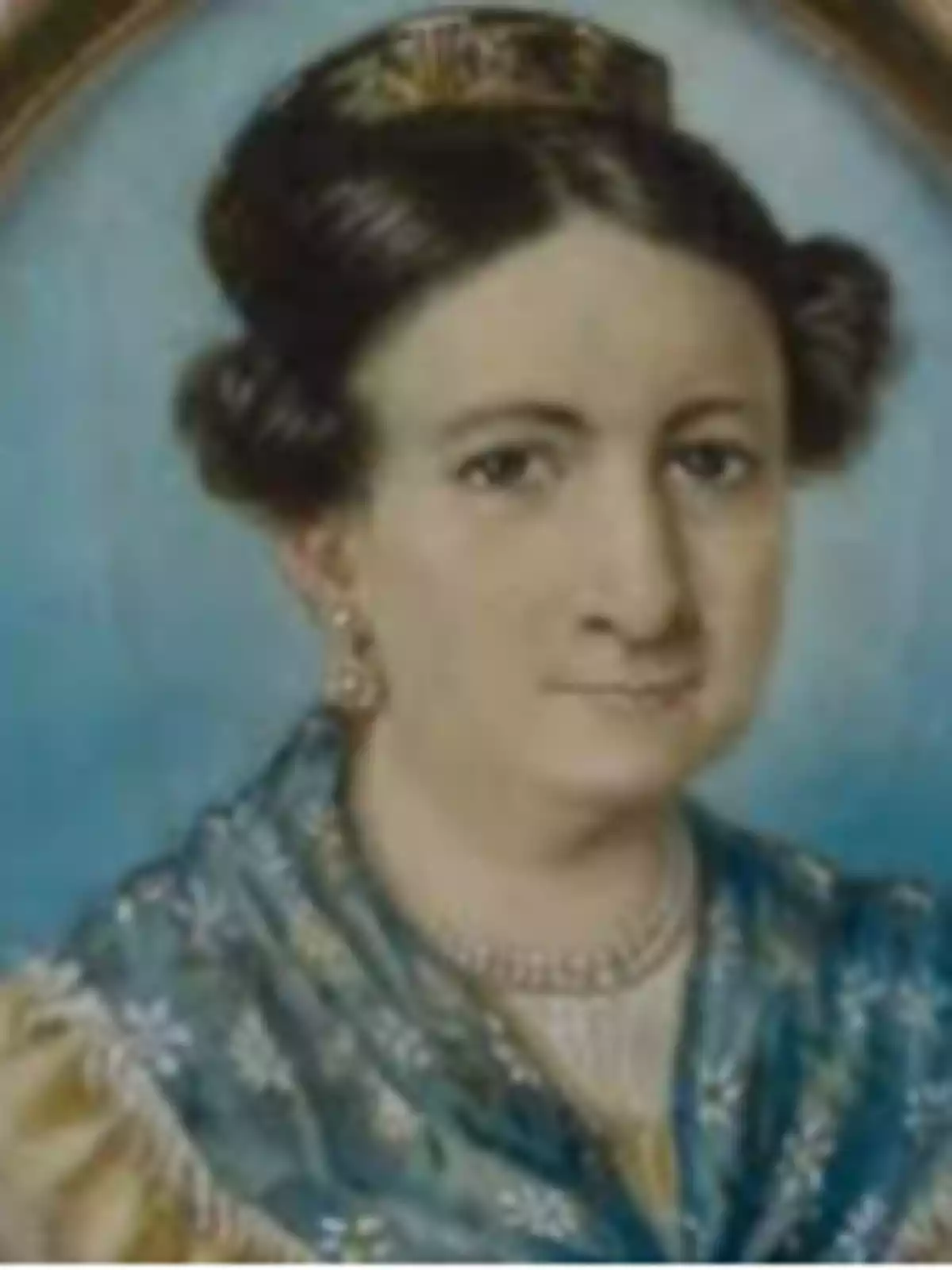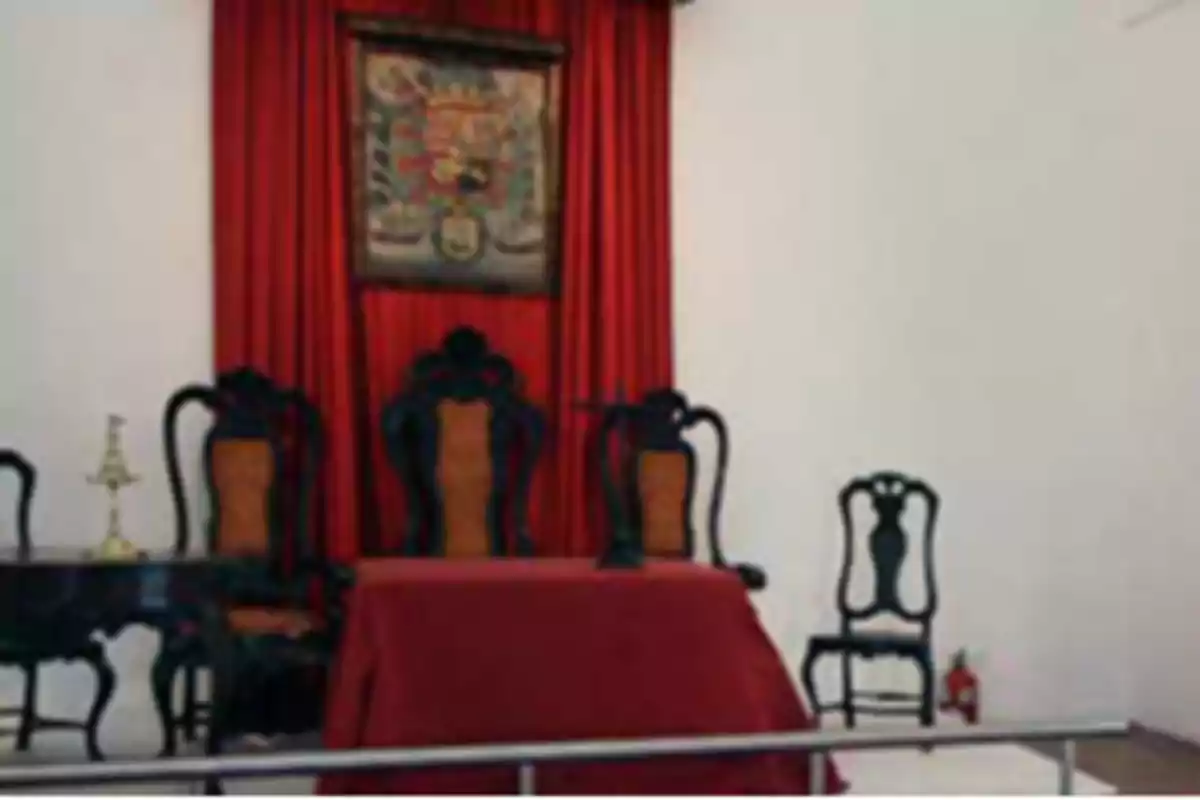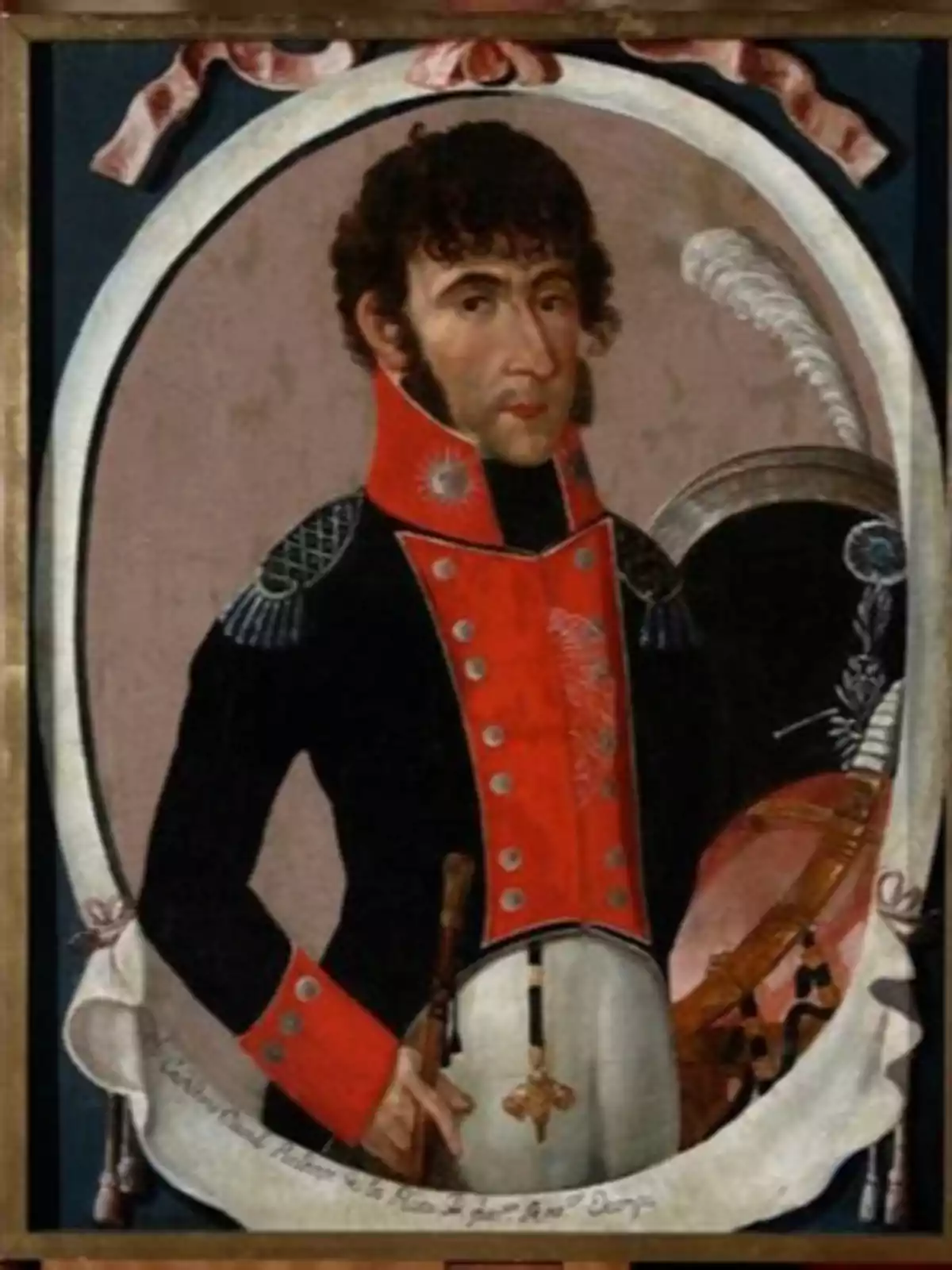
Anniversary: how José María Paz, military hero of Argentine Independence, was formed
The early years of José María Paz, his education in Córdoba, and his entry into the Army of the North in the May Revolution
The early years of our greatest military chronicler of the Independence and Manuel Belgrano's trusted officer. His family and childhood in Córdoba. His fondness for studies, culture, and reading. Juan Martín de Pueyrredón's work in support of the Army of the North in Córdoba. Paz as an infantry militia lieutenant. His march to the North to reinforce the Army.
José María Paz was one of the most remarkable Argentine strategists of all time and a privileged witness to the most important events of our Nation's birth. He had the honor of meeting most of our founding heroes and participating in many of the actions in which our Army of the North fought. However, his life was eventful and sacrificial; full of bitterness, hardships, and disappointments.
His early years are not very well known. José María was born on September 9, 1791, in the city of Córdoba, capital of the Córdoba del Tucumán intendancy, in the Viceroyalty of the Río de la Plata. He was the firstborn of the marriage between José de Paz, from Buenos Aires, and Tiburcia Haedo, from Córdoba. His father was an official of the colonial Post Office, and both parents were financially well-off, which allowed them to provide their children with a thorough education. This was reflected in their training, vocabulary, way of speaking, and writing. Julián and María del Rosario Paz Haedo (future mother-in-law, also of Gen. Paz) would be the other children the couple had.

The broad culture of José María Paz
Throughout his life, José María would notice how his cultured, clear, and concise way of expressing himself, narrating events, and conducting himself contrasted with the ignorance, illiteracy, or lack of even the most basic manners or ability to speak or write of many of his contemporaries, with honorable exceptions. On more than one occasion, he would describe some high-ranking officers from the Río de la Plata (especially the federal caudillos) as people of little intelligence, or that one could not expect them to be like Julius Caesar; who not only knew how to fight well, but also "speak and write well"; which was what our caudillos most lacked.
The eldest son of Gen. Paz, José María (Jr.) tells us that the general's parents "provided him from his earliest years with a thorough education, not only preparing his mind to adorn it with useful and varied knowledge, but also instilling in his heart delicate and generous feelings that he knew how to preserve throughout his life, amid so many vicissitudes, and in very difficult positions."
In 1804, and at 13 years of age, he entered the Loreto Seminary as a boarding student, where he received a thorough education, for the time, in philosophy and theology; until he completed his studies as a Bachelor of Arts, with special training in mathematics, Latin, and law. From there, José María would acquire his fondness for reading classical works of the ancient Romans, such as Caesar, Cicero, and others, in Latin; a penchant he would retain even during his years of imprisonment and until the end of his days.
At that time, there were not many opportunities for higher education in Córdoba, Paz's hometown; and as his son narrates: "at that time, it is well known that few careers were open to young people: the ecclesiastical and legal professions were the preferred ones. Paz was willing to adopt whichever suited him best, having attended philosophy and theology classes at the University of Córdoba." Thus, in 1808, at 17 years of age, he enrolled in that House of Studies, with the desire to become a lawyer, as was customary in leading families.
The May Revolution
José María was "in his third year of law studies when the revolution broke out in Buenos Aires that brought down the power of the Viceroys. The students of the University of Córdoba, his homeland, were already touched by the political movement, which would soon embrace the entire extent of the Viceroyalty of the Río de la Plata, and then set all of Spanish America ablaze," his son tells us.
Indeed, at that time, a counterrevolution had broken out in Córdoba, led by the royalist governor Juan Gutiérrez de la Concha and his comrade and friend Don Santiago de Liniers, which was quickly thwarted with the arrival of the Army of the North.
Then, the entire inland province joined, from then on, the cause of May. In line with this, "Paz embraced the new ideas with all the ardor of youth, and it can be said that no one surpassed him in patriotic enthusiasm. Thus, from that moment, he belonged to the cause of the Revolution, that is, the political independence of our country, with all the strength of his soul. His parents' decision for the same cause, to which they never ceased to be devoted, helped to strengthen these feelings."
His brother Julián, who was also born in Córdoba, on March 16, 1793, was two years younger than José María; to whom he was very attached, and following the firstborn, had also begun his studies in "both laws", at the University. Regarding him, José María (Jr.) tells us: "his brother, Mr. Julián, a little younger than him, and who was also studying, was in the same situation. Thus, when the first liberating expedition arrived in Córdoba, and after the first national government was established in the province, which was held by then-Colonel Juan Martín Puyrredón, both they and their family stood out for their liberal and patriotic sentiments."
Pueyrredón: Governor of Córdoba
Shortly after Juan Martín de Pueyrredón arrived to take charge of the Córdoba del Tucumán Intendancy, he set about recruiting a battalion of Córdoba infantry militias, as support and possible reinforcement for the Army of the North, in this war of independence that threatened to be (and indeed was) difficult and arduous.
"Both brothers were appointed officers in it. Mr. José María entered as a Lieutenant, but very soon was promoted to Captain," his son would recall. Possibly the fact that both came from a good Córdoba family and had begun higher studies (which was not very common at the time), led Pueyrredón, who always maintained an excellent relationship with the Paz family, to improvise junior officers with these university students who were educated, knew how to read, write, and express themselves correctly; to lead recruits who, for the most part, were surely illiterate and without any instruction. However, here the narrator gets a little ahead of the facts, and mentions that shortly after, José María would be promoted to captain; when that would actually happen much later, already in the Army of the North.
"He held this rank in the last months of the year ten, when the sad news arrived of the defeat suffered by our forces in Santiago de Cotagaita, under the command of Major General Antonio Balcarce. Such was the enthusiasm of those times that there were plenty of volunteer soldiers, but a shortage of rifles and other weapons." The news of the setback at Cotagaita filled all the young patriots of the interior with patriotic spirit. Immediately, that improvised but enthusiastic battalion of inexperienced Córdoba militiamen asked Pueyrredón to allow them to rush to the aid of their compatriots fighting in the Army of the North, in Upper Peru.
In this situation, Pueyrredón agreed to send all the aid at his disposal, with that diligence that was characteristic of him and which he would show even more when, years later, he had to supply the Army of the Andes, occupying the Supreme Directorate of the State himself. He quickly managed to organize a caravan with supplies, as José María (Jr.) recalls: "In Córdoba, a convoy and war munitions were prepared and Paz was entrusted with taking it to the Army."

The news of Suipacha:
However, shortly after setting out, and about 150 km (93 miles) north of the city of Córdoba, near San José de la Dormida, Paz's column "met Major Tollo, who brought the news of the victory at Suipacha, which not only avenged the affront at Cotagaita, but also opened the doors of all Upper Peru to our army. Paz naively believed that the battles and the war had ended forever, and Major Tollo confirmed this idea, when, upon giving him the news, he proudly rose in his stirrups and said: you're already late, for everything is over."
Roque Tollo was the major of the Patricios Regiment that Juan José Castelli had sent, from Tupiza, to Buenos Aires, on November 10, 1810, with his final report to the First Junta, giving details about the triumph at Suipacha and also sending the first flag captured from the royalists in the wars of independence, which can be seen today in the Cabildo of the city of Buenos Aires.
The "Suipacha trophy" in the Chapter Hall of the Cabildo of Buenos Aires.
Paz was then the first person from Córdoba recorded in history to learn of the triumph at Suipacha. Despite this disappointment in the spirit of the young Lieutenant José María, he himself continued, with his detachment, marching northward, in order to bring the Córdoba supplies to the patriotic forces in Upper Peru. His son would recall: "Nevertheless, he continued his march and reached Jujuy, where he found the Army; because the commanding general Ocampo, who was not at the battle, had stopped there and had to return by order of the Government of Buenos Aires."
Indeed, despite having been relieved of command of the Army of the North, Francisco Antonio Ortiz de Ocampo, its first commander, still remained in the rear of the Army. He would later be summoned to the Capital to account for his disobedience to the First Junta's order to execute Santiago de Liniers. Providentially for this commander, shortly thereafter he was elected Deputy for his native province, La Rioja, to what we would later know as the Junta Grande. This, together with the loss of power of the Morenista party in that Junta, ensured that he was never tried, and could join that governing body.

The return to the "Docta"
Meanwhile, the young Lieutenant Paz was also ordered to return to his home province; for which he went down together with Gen. Ortiz de Ocampo, "devoting himself without delay, upon arrival, to the continuation of his studies, always retaining his rank and ready to present himself wherever the Homeland might call him," his son would tell us.
Shortly thereafter, he would once again take up arms, to completely abandon the University, and dedicate a life full of sacrifices, hardships, and suffering to the struggle for the Freedom of his Homeland.
More posts: